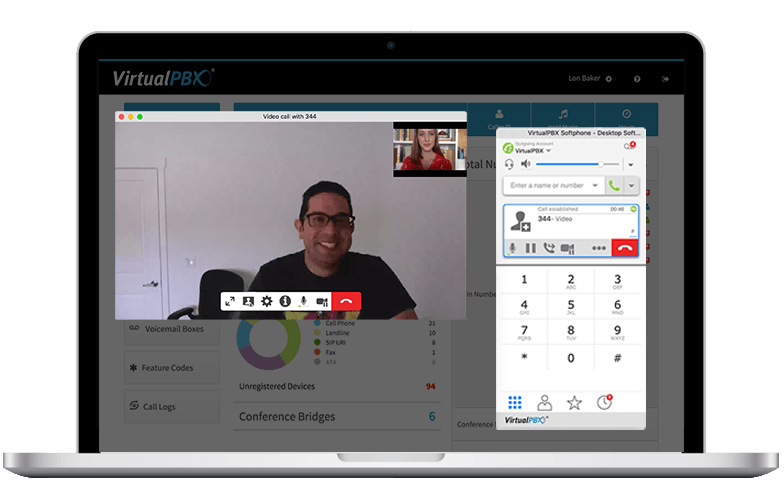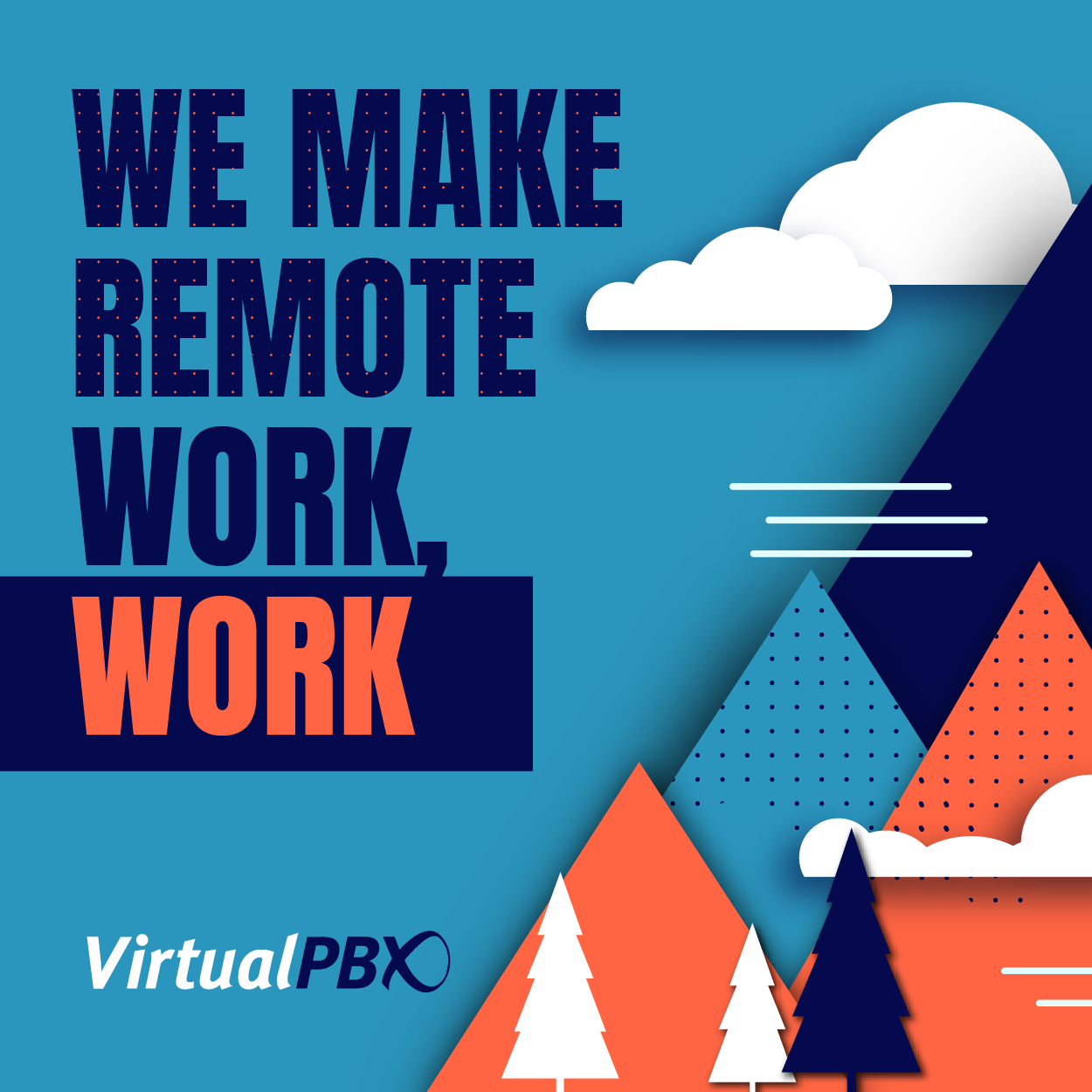 We recently completed a case study with a legal firm that has been a customer of ours since 2014. The Law Office of Stacy Jacob study shows how that particular firm is responding to the COVID-19 pandemic and mirrors what’s happening in the law industry as a whole.
We recently completed a case study with a legal firm that has been a customer of ours since 2014. The Law Office of Stacy Jacob study shows how that particular firm is responding to the COVID-19 pandemic and mirrors what’s happening in the law industry as a whole.
Our research finds that law offices are taking measures like adopting alternative methods of working with clients, reducing workload and staffing, and looking at past economic downturns to help tackle the current state of the world. Those insights are shared here, including an overview of how Stacy Jacob has adapted to her own situation.
Using VirtualPBX to Assist With Remote Work
More often than not, Stacy Jacob is making calls from her office from a desk phone. It’s her go-to device for reaching out to clients. However, she’s seen an increased need to complete remote work since COVID-19 began affecting the operations of businesses everywhere.
Jacob’s response has been to make more of a concerted effort to use multiple devices throughout the workday. The desk phone still takes center stage, but our Call Forwarding feature has helped Jacob use her mobile phone more to take calls away from the office. She has also begun using our mobile Softphone App to return calls to clients when she is working remotely.
These combined devices allow her to keep a consistent brand image no matter where her work takes place. They have been useful by adapting to her preferred business practices, which is a key element to what many other firms are trying to achieve.
Quick Adaptation to New Tech
 ABA Journal notes that the legal industry has seemed to adapt more quickly than others in order to create an effective work-from-home environment that benefits both lawyers and their clients.
ABA Journal notes that the legal industry has seemed to adapt more quickly than others in order to create an effective work-from-home environment that benefits both lawyers and their clients.
Jennifer Leonard, head of the Penn Law Future of the Profession Initiative, spoke to ABA Journal and noted that law firms were suddenly moved into an area of “forced experimentation” where audio- and videoconferencing were more the norm than the exception as they respond to COVID-19.
They now regularly use conferencing tools to complete staff meetings and hold litigation with various parties.
Workplace Activity and Personnel Changes
First Legal states that litigation will need to fundamentally change and that legal firms will need to examine closely how they do business.
In particular, First Legal suggests that many firms are making personnel cuts and that regional companies are the ones being affected most. National firms tend to have more monetary reserves and will be hit less forcefully by a sudden drop in new cases.
One part of litigation that can be reformed relatively easily, says First Legal, is mediation, which has become a more common sight since the COVID-19 pandemic hit.
“Mediation can be fully remote, which allows you to further your case while minimizing the strain on local court resources,” the article notes.
Global Legal Post points to a recent survey of the legal industry by Major Lindsey & Africa that says 39 percent of its respondents had already seen a drop in workload. Global Legal Post’s article was written in May 2020.
The study notes that the biggest areas of legal practice hit are real estate and intellectual property. Perhaps it is unsurprising that, in contrast, bankruptcy legal practices reported an increase in workload for the same time period. With many businesses in other industries filing for bankruptcy (including retailers, food chains, and entertainment companies), it makes sense that some legal firms would need to help process the paperwork for those proceedings.
In order to avoid the same fate themselves, some legal practices are turning to history as a source of hope and possible inspiration to weather this storm.
Looking to Downturns Past
As laid out in a recent McKinsey article, there are a number of lessons that law firms can learn from past changes in the economy.
McKinsey says that law firms tend to fare better than other industries when the economy slows down. It connects this idea both to the fact that many businesses – because of the downturn – will need to restructure how they work and that certainty in product costs have proven steady throughout slowdowns such as the recession between 2007 and 2012.
Additionally, law firms in specific practice areas may be able to predict where the most demand, per industry, will occur as all businesses respond to the COVID-19 pandemic. Specifically, McKinsey points to the industries of healthcare and telecommunications as expected to face fewer ill effects from COVID-19 and will have their legal needs met in the coming months mostly through alliances, joint ventures, and regulatory reform.
The industries of energy, transportation, travel, and leisure may have a more difficult time weathering the pandemic, McKinsey suggests. Their legal needs will likely be met through shareholder litigation and supplier disputes.
It will be on the shoulders of law firms to look at such demand outlooks so they can take advantage of practice opportunities as they arise. Firms that already have exposure to those markets should be in a better position to take advantage of further demand as it arises.
Your Own Response to COVID-19
What we help provide for any legal firm’s needs is a chance to increase their consistency as they communicate with clients in a mix of in-office and remote work. Regardless of your areas of practice, there will be a greater demand from here forward to limit face-to-face contact with customers and firm partners as much as possible. You can see how we handle those communications needs in our Legal Services page dedicated to that profession.
Combining the use of tools such as desktop phones, our Web Phone, and the VirtualPBX Softphone for use on your desktop or mobile devices will let you complete calls from anywhere. The predictions echoed above expect this economic downturn to continue for many months. Your ability to respond to the COVID-19 pandemic well will depend on your willingness to adopt new tools and methods of work. We hope to join you as your business changes.










